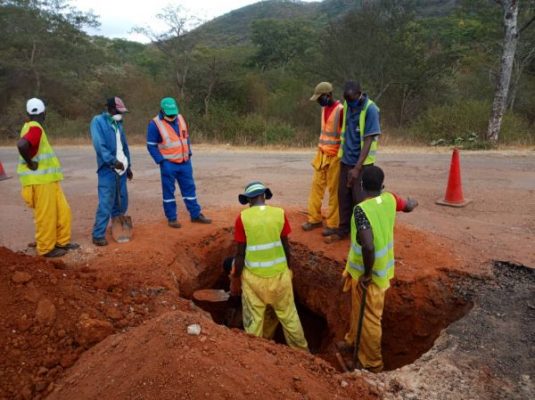Zimbabwe Environmental Law Association (ZELA) Deputy Director Shamiso Mtisi speaking in an a-no-holds-barred interview with Open Parly ZW said artisanal miners and Chinese mining operations are at the forefront in damaging the country’s natural environment.
Mtisi said that the Chinese and artisanal gold miners do not rehabilitate the environment after mining although has been a known major contributor to the depletion of natural resources and the environment.
According to Mtisi, the recklessness by the Chinese not to rehabilitate land after mining has caused water pollution, air pollution, land degradation, loss of life and in some cases displacement of communities.
“Mining has been a major contributor to the depletion of natural resources & the environment. Mining activities are encroaching into protected areas and in cases where mining takes place some companies, especially the Chinese & artisanal gold miners do not rehabilitate the environment after mining. This has caused land degradation, water pollution, air pollution, displacement of communities and loss of land” said Mtisi.
The ZELA Deputy Director said it was important for the government to license artisanal miners so that they can be regulated. He said that artisanal miners were important to national development because they contribute over 60 percent of gold deliveries to the country’s sole gold buyer and exporter.
“We need licenced artisanal miners who can mine responsibly and can be regulated. They are important for the economy. If you look at gold production figures for 2019 more than 60% of gold deliveries were from the artisanal and small-scale miners, although the Government does not want to formalize artisanal miners.”
“Government wants their gold, but not interested in regulating their operations-this is an absurdity. So we need artisanal miners to be given permits and required to adopt environmental rehabilitation programmes as is happening with Small Scale miners who now have to adopt Environmental Management Plans with the assistance of the Environmental a Management Agency,” he said.
Mtisi also said that the government should amend the Mines and Minerals Act by including a new class of mining licence or permit for artisanal mining reserved for citizens. Mtisi said that the Environmental Management Agency (EMA) had already developed regulations management plans to be used by artisanal miners. The ZELA Deputy Director elaborated saying that licensed miners can give artisanal miners tributary agreements as a way of regularising them.
“Zimbabwe should amend the Mines and Minerals Act by including a new class of mining licence or permit for artisanal mining reserved for Zimbabweans. This is not new Sierra Leone, Liberia, Philippines and many other countries have such licences. EMA has already developed regulations on environmental management plans which can be used by artisanal miners.
“Alternatively, artisanal mining can be effectively managed through the use of Tributary Agreements where holders of mining licences or companies holding mining claims can enter into agreements with artisanal miners to mine on their land and the artisanal miners pay or share proceeds with the claim owner, and includes some environmental rehabilitation programmes. This model appears to be applied at the Shurugwi Development Association.” the ZELA Deputy Director said.
Zimbabwe Environmental Law Association has a training programme for artisanal miners on mining legislation, safety, health and environmental rights. This covers different parts of the country. The programme includes the provision of mining equipment, mapping of artisanal mining sites in Runde, training on responsible sourcing and business & human rights and registering women groups as legal entities to start artisanal and small scale mining operations.





